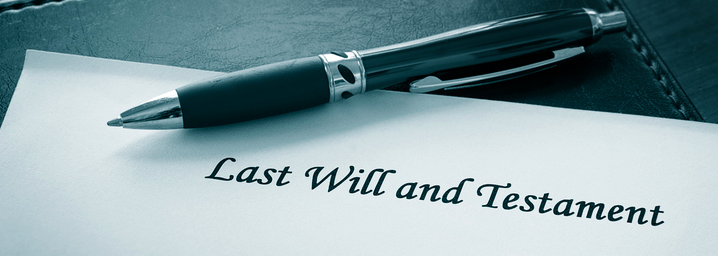Pondering your own death is about as unpleasant as it gets. But planning your own funeral for your kids might be the biggest favor you’ll do for them (other than leaving them a good inheritance). While there’s much one can do to get your will ready, your documented funeral requests, living will, organ donation requests and inheritance directives (bequeathing) is a good start.
Write down all requests for your children or for the estate to follow, then tell your children where they can find this information when planning your own funeral.
While parents can get caught up in the rigors of financially providing for children in the event something happens to one or both parents, there are many other things to consider when detailing your requests upon death. Here’s a good checklist to get your started:
1. Plan for the care of your children
While a legal Will can provide the directive needed in a court of law, it may be enough to contact the person who you would like to take over in the event your children need someone to raise them.
- Who will my kids live with if I die?
- How will they afford to raise my children?
- What will happen to my pets when I die?
- Is there someone you, specifically, don’t want raising your children?

These questions are the first ones that will be asked at your funeral if your children are not old enough to live on their own. A simple document indicating your wishes for each of the above questions can help prevent those tough questions from having to be pondered, debated and, at times, settled in a court of law.
2. Plan for your own long-term health care
The chances are you’ll end up with a terminal illness. That is to say, everybody dies of something, someday, so it may be worth buying what insurance brokers call a “Long Term Health Care Policy” which will cover the expenses of your entering a nursing home or hospital when a chronic illness requires you to move out of your home and into a nursing home or hospital for those last miserable years of life. Actually, it doesn’t have to be that miserable with some of the “Cadillac Policies” being offered these days. Nursing homes can cost upwards of $10,000/month and it doesn’t have to come out of your own pocket with proper planning.
3. Create a Living Will for yourself (or Not)
If the idea of withering away next to a life-support system doesn’t appeal to you, then rest assured it probably isn’t something your kids will want you to endure either. But in the event there’s an illness or accident reducing you to brain-dead coma, then your children will be empowered with a piece of paper that says to “Pull the Cord” or “Don’t Pull the Cord.” Giving your children an indication in a legal document can mitigate a lot of tough decisions that will otherwise have to be made by them and them alone. Sometimes kids will fight among their siblings if they’re not sure. A clear and concise statement on a piece of paper, while not necessarily a legal Living Will, can be what a child needs to read to help make his or her own decision on how to handle your end-of-life situation.
4. Plan how your inheritance will be distributed
Who will get your favorite watch, grandfather clock and other belongs. Don’t assume your children will get all those things. Spouses and siblings might be the first to collect on the family heirlooms if your wishes are not made clear in advance of death. If you’re married, all your belongings will transfer to your spouse, first.

What about your Facebook and social media accounts when planning your own funeral? More and more, the legacy of our lives are documented within the digital realm. Photos are locked into iCloud and Facebook is where all those little memories are stored. Make sure your children will have access to your email address so they can make decisions what to do with these memories. Understand that by not allowing access to your social media and private cloud servers, your children and grandchildren may not have future access to those memories locked into so many photos and status updates. Find out more information on Facebook Memorialization, for instance.
5. Planning your own funeral for your children
By contacting and contracting with a funeral home in advance of death, you’ll save money on funeral expenses while making tough decisions in advance for your children. Keep in mind that if you do not have a clearly written directive on what to do upon death, others will make these decisions:
- Which funeral home will collect your body?
- Do you want to be embalmed, buried or cremated?
- Do you want a particular casket
- What should be done with my body or ashes?
- Is there a family burial plot?
- What should be written on the headstone or funeral marker?
- Do you want a particular type of memorial service?
- Who do you want to deliver your eulogy?
- Do you want flowers donated or donations in lieu of flowers?
- Who are the people that should be contacted upon my own death?
6. Write your own obituary
Perhaps one of the most difficult tasks for loved ones to undertake is the writing of your legacy. Planning your own funeral means also dictating your wishes for your legacy. While others will think of you in the capacity of your relationship with that person, only you can dictate how you want to be remembered by the greater public, friends and acquaintances who are left behind. Write your own obituary to ensure everything that needs to be said gets said.
Finally, there are steps parents can take now to make planning for your own funeral something that will not be a burden for your children. Specifically, ensure that someone has been assigned Power of Attorney (POA) so that tough decisions can be more easily made if you get sick or incapacitated. A POA allows for that assigned person to make decisions on how to handle finances, with banks, insurance companies and the government honoring this proxy.
Other resources:



Great and informational post! Planning your kids funeral ahead of time, while you’re still alive, is the best way to ensure that everything proceeds exactly to plan when the time finally comes.